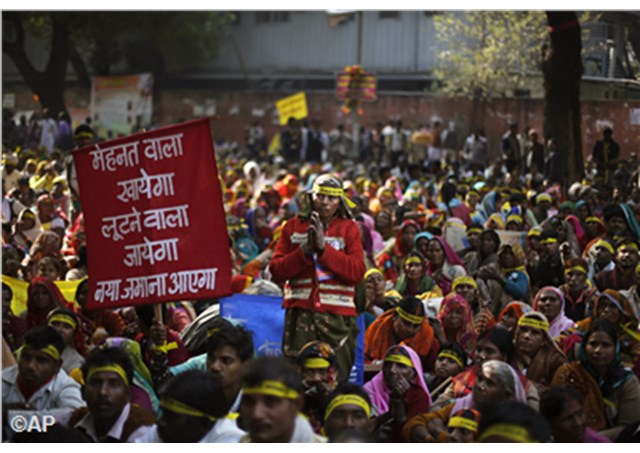
Rape in Indian state much higher than reported, activists say

Government data shows that at least 13 women are raped in India's Madhya Pradesh state each day — the highest rate in the country — but some people including a top Catholic Church leader say the actual number is much higher. The National Crime Records Bureau data released this week showed the central Indian state accounted for 5,076 rapes in 2014, nearly 40 percent higher than the next highest state. "The actual cases of rape and other sexual offenses committed against the tribal and dalit women are seldom reported," said Archbishop Leo Cornelio of Bhopal. The state of some 75 million people, second largest in terms of area and sixth largest in population, also recorded some 4,150 crimes against tribal and poor-caste people, the data said.
Archbishop Cornelio, who is based in the state capital told UCANEWS that widespread poverty and illiteracy among tribal and dalit women lead to an underreporting of rapes and violent crimes committed against them. As they have no money or influence and lack an understanding of India's complex legal system, "women in remote areas silently suffer such atrocities rather than reporting them to police," the archbishop said. Since rape carries a social stigma, "women also do not dare to go to the police or the public with such issues," he said.
Tribal leader Gulzar Singh Markam said the reported cases could be "less than one-fourth" of the actual cases of rape and other sexual crimes committed against women from minority groups. Markam, national vice president of Gondwana Gantantra Party, a leading tribal political party in the state, said although caste-based discrimination is outlawed, higher-caste Hindus still continue to discriminate and socially oppress tribal and dalit people. "For example, even today, the upper caste does not allow a dalit's marriage procession to pass in front of the houses of a higher caste," he told ucanews.com Socially poor people are attacked for daring to violate caste-based social systems. "When a woman is at the receiving end even men remain silent fearing further backlash," Markam said.Government data shows that at least 13 women are raped in India's Madhya Pradesh state each day — the highest rate in the country — but some people including a top Church leader say(S) the actual number is much higher. The National Crime Records Bureau data released this week showed the central Indian state accounted for 5,076 rapes in 2014, nearly 40 percent higher than the next highest state. "The actual cases of rape and other sexual offenses committed against the tribal and dalit women are seldom reported," said Archbishop Leo Cornelio of Bhopal. The state of some 75 million people, second largest in terms of area and sixth largest in population, also recorded some 4,150 crimes against tribal and poor-caste people, the data said.
Archbishop Cornelio, who is based in the state capital told UCANEWS that widespread poverty and illiteracy among tribal and dalit women lead to an underreporting of rapes and violent crimes committed against them. As they have no money or influence and lack an understanding of India's complex legal system, "women in remote areas silently suffer such atrocities rather than reporting them to police," the archbishop said. Since rape carries a social stigma, "women also do not dare to go to the police or the public with such issues," he said.
Tribal leader Gulzar Singh Markam said the reported cases could be "less than one-fourth" of the actual cases of rape and other sexual crimes committed against women from minority groups. Markam, national vice president of Gondwana Gantantra Party, a leading tribal political party in the state, said although caste-based discrimination is outlawed, higher-caste Hindus still continue to discriminate and socially oppress tribal and dalit people. "For example, even today, the upper caste does not allow a dalit's marriage procession to pass in front of the houses of a higher caste," he told ucanews.com Socially poor people are attacked for daring to violate caste-based social systems. "When a woman is at the receiving end even men remain silent fearing further backlash," Markam said. (Source: UCAN)
| All the contents on this site are copyrighted ©. |


